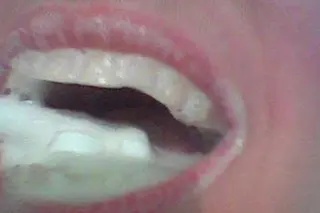Photo: flickr/Marcela GSometimes the human brain does weird things. Take the woman described in this case study, for example; when she brushed her teeth, it would induce a seizure that resulted in an orgasm before she passed out. It seems that there was reduced blood flow (hypoperfusion) and some damage (atrophy) in part of her brain that likely caused her tooth-brushing-induced orgasms. No other activity seemed to produce this effect, including brushing without toothpaste. Why this particular combination of stimuli worked remains a mystery (to the disappointment of dentists everywhere).Tooth-brushing epilepsy with ictal orgasms. “We report a 41-year-old woman with complex reflex epilepsy in which seizures were induced exclusively by the act of tooth brushing. All the attacks occurred with a specific sensation of sexual arousal and orgasm-like euphoria that were followed by a period of impairment of consciousness. Ictal EEG demonstrated two events of epileptic seizure that were provoked ...
Flashback Friday: Tooth-brushing-induced orgasms. Look ma, no cavities!
Discover the bizarre case of tooth brushing epilepsy, causing seizures with sexual arousal and orgasm. Learn more about this rare condition.
More on Discover
Stay Curious
SubscribeTo The Magazine
Save up to 40% off the cover price when you subscribe to Discover magazine.
Subscribe













